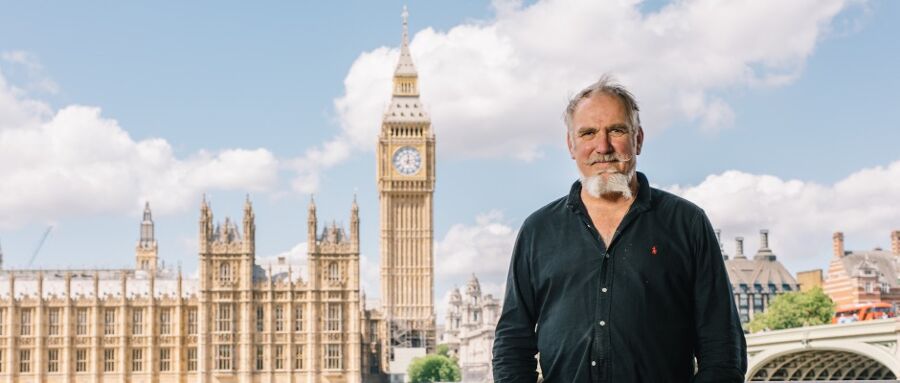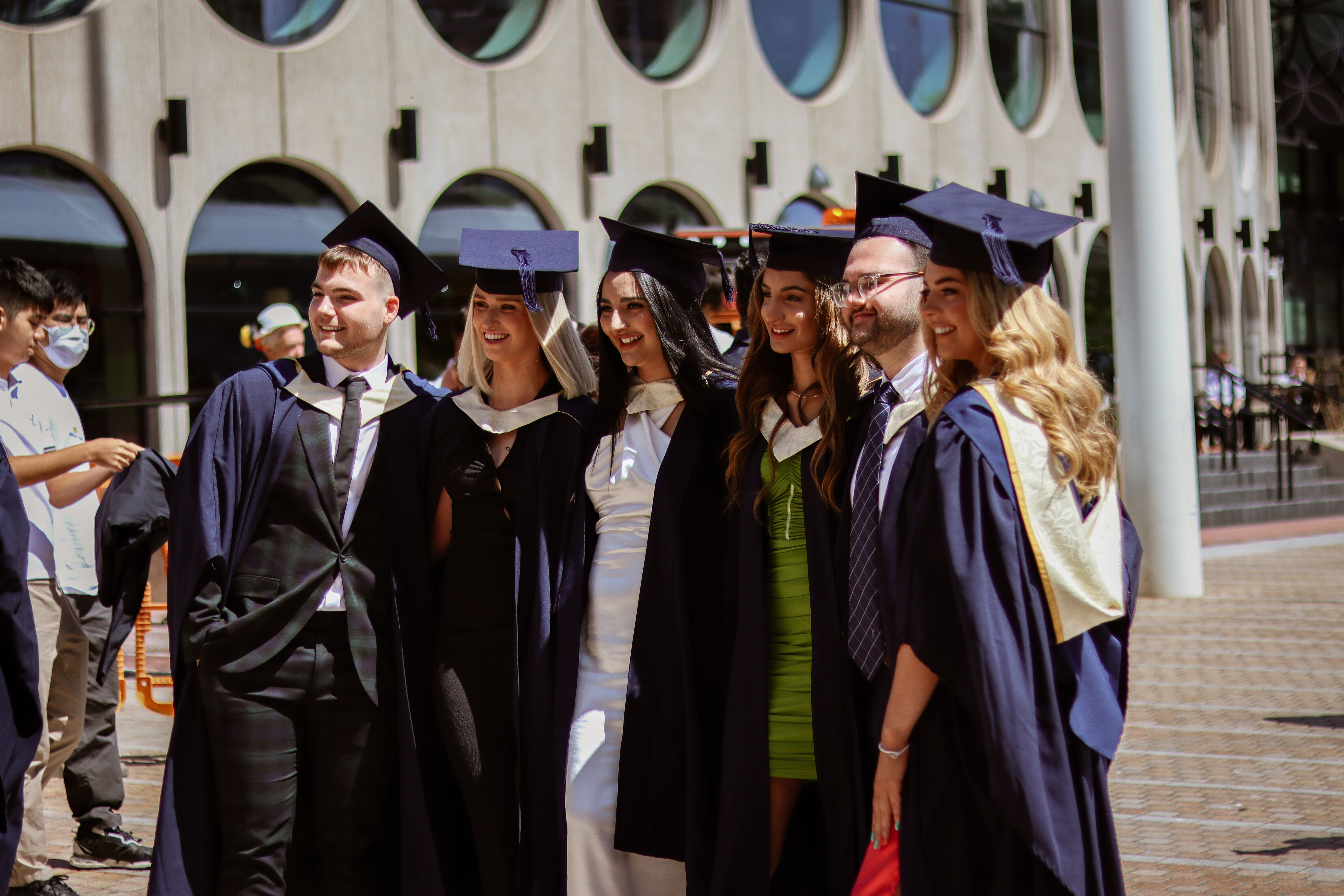
Keith Scobie-Youngs
Horology
After graduating in Horology, Keith decided to take a risk and set up his own company. Over 30 years later, Keith now manages a large team of skilled workers who look after some of the world’s most famous clocks, including their recent restoration work on Big Ben. His passion for clocks is only getting bigger, with his family also choosing to follow in his footsteps. With an exciting future ahead, his main goal is to now give back to his industry, as he prepares to offer excellent opportunities to current students.
“Growing up, my father was head of woodwork, metalwork and technical drawing at the local school, so I was taught that if you can work with your hands, you’ll have a job for life. When I was 14, I started making stuff in my dad’s workshop, and I soon found out about the course at BCU. It was a very small course at the time, really wacky, and there were only a couple of lecturers. But we were taught well, and that set us up for life.
I was just 17 when I moved to Birmingham from a small village. It was a massive culture shock, but also the best thing to ever happen to me as it made me aware of a world that I didn’t know existed. My time in Birmingham was an incredibly important time to me growing as a person.
After graduating in 1984, I moved down to London and became a Clockmaker, but the wages weren’t brilliant and I considered moving industry. But then I met my wife, Lynn. She saw that I was a talented worker, so suggested that we set up our own business. We were just 26 years old, but we took a risk. We left London, headed for the Lake District, and never looked back.
I am now Managing Director of Cumbria Clock Company. We’re situated in the small village of Dacre in the Lake District National Park. We employ 22 people and are constantly expanding due to our important work specialising in church and public clocks.
Most recently, we have been working on the restoration of Big Ben, the timepiece on Queen Elizabeth Tower in Westminster. We have been working with the Palace Clock team for almost five years. After working with the team in 2007, I stayed in touch with them, so when the Elizabeth Tower project first came around, we were approached to go along and discuss what is involved in working on a building site with a large clock. We ended up getting more and more involved in the project, and we were eventually asked to assist the team from start to finish.
After we dismantled the clock, the whole mechanism came up to our workshop in Cumbria, and then we were able to start this huge conservation project. We weren’t able to make it public knowledge that the clock was in our workshop for a long time, in case tourists came by, and potential thieves. Thankfully, with the help of the locals, we kept it all under wraps for a long time. It really was incredible to have the heartbeat of the nation ticking away in our workshop. We were able to start taking the clock back down to London in 2021, and we worked on it throughout 2022. Now, everyone can hear Big Ben’s chimes across the city once again.
Our other major projects and clocks that we look after include the Royal Liver Building in Liverpool, which has the largest clock dials in the country. We also look after many royal palaces, including Hampton Court Palace, and we’re currently working on a major restoration of Manchester Town Hall’s clock.
We also look after the clocks at Salisbury Cathedral, which houses the country’s oldest working clock, as well as historic London Underground clocks and lots of smaller and really interesting clock towers, which house so many horological gems. Outside of the UK, we have worked in Fiji on their government buildings, and also in Hong Kong. We specialise in this fascinating, giant world of horology and I’m lucky to have a very skilled set of people working alongside me.
In fact, I’ve been incredibly fortunate to make a living with a specialist trade that has given me the opportunity to work on some of the most historical clocks in the country, and to travel the world. It has allowed me to achieve some of the biggest things that I possibly can in my industry.
But it hasn’t always been easy. The biggest challenge has been growing the company and employing people, and of course there’s always challenges with new competitors in the marketplace. Building the actual workshop has been incredibly important too, getting all the equipment that we need, knowing the techniques required and building the skills amongst our staff. But, we’ve now been going for almost 34 years, and it has been worth it.
In the near future, we are planning on building a bespoke conservation clock studio, hopefully with a museum attached and an educational hub too. We’re keen to do this to build our legacy, and we want something to leave behind for future generations.
We’re keen to put back into the system what we got out of it, as without the School of Jewellery, I wouldn’t be where I am now. The company are now working alongside BCU to offer work experience opportunities. We’re happy to pay for their travel, accommodation and expenses too. We just think it’s really important to give students an understanding of both the industry and business, and experience part of our world.
Clocks have always been a big part of our family life, so it was inevitable that our son, Callum, would end up studying Horology at BCU too. If your parents have set up a clock company and are always discussing it at the dining table and their whole lives essentially revolve around the business, it’s no wonder that Callum felt inspired to study it himself, and he’s taken to it very well.
My other son, William, now works for the company too and my nephew, Peter, who also studied the Horology course at BCU, works for us as well. We’re very fortunate to have our family members follow in our footsteps, especially because Horology is such an important course. The trade is in danger, and to give people the opportunity to study it is crucial. It’s vital for places like BCU to keep these niche but necessary courses going.
My advice to current Horology students would be to enjoy the course. That doesn’t necessarily mean to get the highest grades, it is also about embracing the course and doing the best you can. Don’t be scared, if you feel like you want to push forward and set up your own business, go for it. It is all a journey.
Horology is something that you will always learn from, even years after graduating, as there is so much to grasp. I’ve been working in this industry since I was 17. I’m now 58, and even I’m still learning every single day, and that’s the best thing about it.”

Join our community
Stay connected as a BCU graduate and join our Alumni community. From news and events to career advice, our community is with you through graduation and into your future.